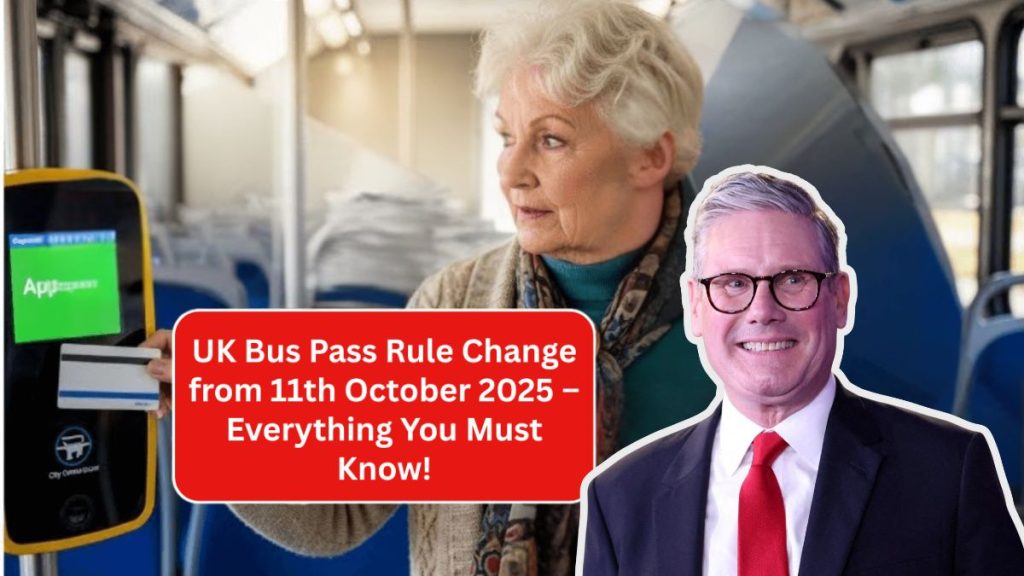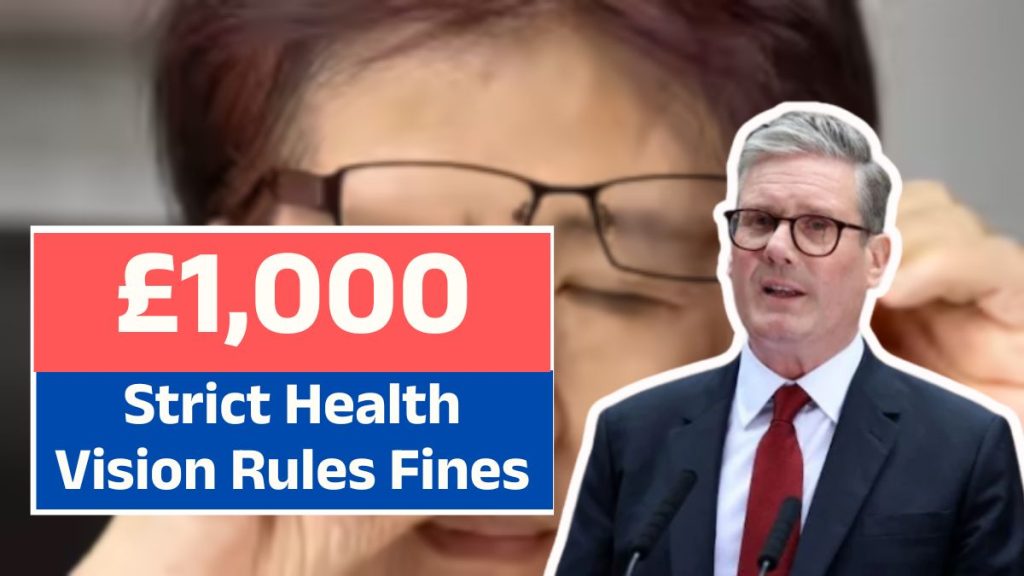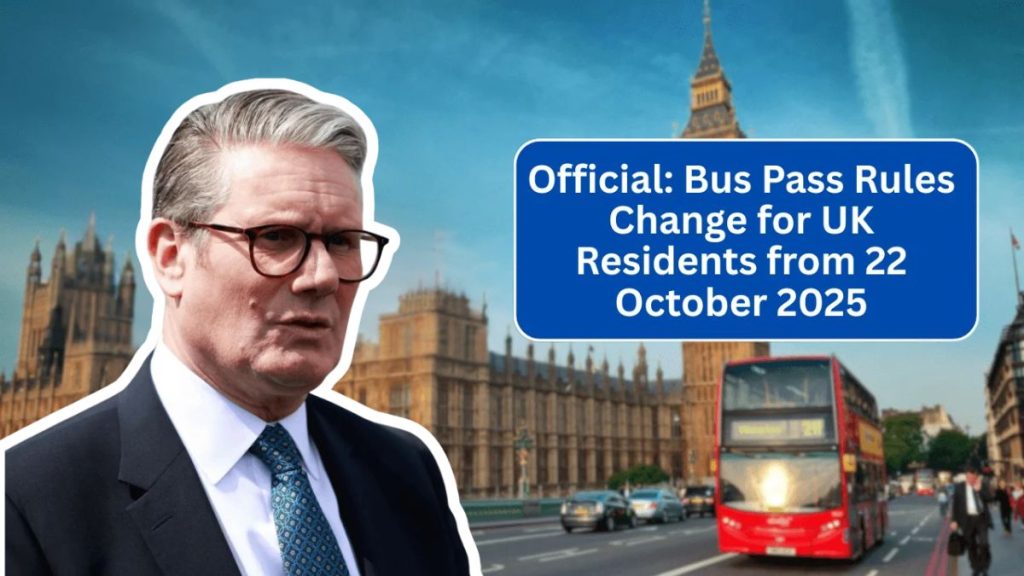The UK Government has officially confirmed a sweeping update to the Blue Badge Scheme, set to take effect on 28 October 2025. The changes — announced by the Department for Transport (DfT) — will transform how disabled motorists apply for, use, and renew their Blue Badges.
The reforms include new eligibility rules, a digital verification system, and stricter penalties for misuse. The government says the goal is to make the system fairer, faster, and more secure, ensuring that only eligible individuals benefit from this essential mobility scheme.
“The Blue Badge Scheme is vital for independence, accessibility, and dignity. These changes will strengthen fairness and ensure those who truly need it get support quickly,” said a DfT spokesperson.
Why the Blue Badge Scheme Matters
For decades, the Blue Badge Scheme has served as a lifeline for people with disabilities across the UK. It allows them to park closer to shops, workplaces, and essential services — helping maintain independence and social inclusion.
Currently, more than 2.5 million people in England, Scotland, Wales, and Northern Ireland hold active Blue Badges. But recent reviews by the DfT found widespread misuse, including forged badges, expired renewals, and non-disabled individuals using badges belonging to relatives.
The new 2025 rules aim to tackle these issues head-on while improving efficiency for genuine applicants.
Key Changes in the 2025 Blue Badge Rules
1. Updated Eligibility Criteria
From 28 October 2025, applicants will be subject to clearer and more standardised eligibility checks across all regions of the UK.
- Medical assessments will now be digitally verified through NHS-linked systems.
- Applicants must provide official medical documentation confirming a long-term or severe mobility condition.
- Individuals with severe mental health conditions that limit mobility will remain eligible.
- Temporary disability badges (valid for 6–12 months) will be introduced for those recovering from short-term conditions or surgeries.
This update addresses long-standing inconsistencies between councils and ensures uniform access for all applicants nationwide.
2. Digital Smart Badge Technology
One of the most significant upgrades is the introduction of digital smart Blue Badges.
These new badges will include:
- Embedded QR codes and microchips for instant verification.
- Links to the holder’s NHS number for identity validation.
- Real-time database tracking, allowing enforcement officers to verify authenticity on the spot.
- Automatic email and text reminders for renewals before expiry.
Traffic wardens will be able to scan badges using mobile devices to confirm ownership, reducing fraudulent use. The DfT has confirmed that paper-based badges will be phased out gradually over 12 months following implementation.
3. Streamlined Application and Renewal Process
Starting in October 2025, all Blue Badge applications will move to an enhanced digital platform on GOV.UK, making the process faster and more transparent.
Key improvements include:
- Instant eligibility checks through integrated NHS and DVLA systems.
- Reduced processing time — from an average of 12 weeks to 3 weeks.
- A dedicated helpline and in-person support service for older or non-digital users.
- Ability for caregivers or family members to manage applications on behalf of badge holders.
This upgrade will eliminate repetitive paperwork and create a standardised national system accessible to everyone, whether online or in person.
Tackling Misuse: Stronger Enforcement and Higher Fines
The DfT’s review identified growing misuse of the scheme — particularly in urban centres — where badges were being sold, forged, or misused by non-eligible individuals.
To combat this, the 2025 update introduces stricter penalties and enforcement powers:
- Using another person’s Blue Badge without them present: £2,500 fine (previously £1,000).
- Displaying an expired or altered badge: Immediate penalty and possible prosecution.
- Producing or selling fake badges: Criminal charges with potential imprisonment.
- Repeat offenders: May lose driving privileges for up to six months.
Local councils will now have the authority to suspend or revoke badges instantly if misuse is detected.
Disability campaigners have welcomed the tougher stance, calling it a “necessary step to protect fairness for legitimate users.”
Support for Disabled Drivers and Caregivers
The DfT stresses that while enforcement is tightening, accessibility remains the top priority.
To ensure a smooth transition, the government will introduce multiple support measures:
- Free in-person help at council offices and libraries for online applications.
- Automatic renewals for those with verified lifelong disabilities.
- Priority reissuance of lost or stolen badges within five working days.
- Caregiver access portals to manage applications for dependents.
These steps are designed to make the scheme more user-friendly while preserving its integrity.
Local Councils’ Role in Implementation
Local authorities across the UK will play a critical role in rolling out the new digital system and enforcing the updated rules. The DfT will allocate additional funding to councils for technology upgrades, staff training, and compliance monitoring.
Key responsibilities for local councils include:
- Installing digital verification tools to scan badges and report misuse.
- Maintaining secure databases linked to NHS systems for data accuracy.
- Submitting quarterly misuse reports to the Department for Transport.
This uniform, data-driven approach aims to end the postcode lottery that has historically affected how Blue Badge applications were assessed region by region.
Addressing Public Concerns
While the majority of the public has welcomed the changes, some disability advocacy groups have voiced concerns about digital accessibility for elderly or rural applicants.
In response, the DfT confirmed that in-person application options will remain available, alongside a national helpline and paper submission system for those unable to apply online.
“We are building a system that’s modern yet inclusive,” said Transport Secretary Helen Morgan. “No one will be excluded from access due to age or technology.”
The DfT is also partnering with Age UK and local charities to provide outreach and education sessions before the rollout.
How to Prepare for the Change
If you are a current Blue Badge holder, the government recommends taking the following steps before 28 October 2025 to ensure a smooth transition:
- Check your badge’s expiry date and renew early if it expires around the transition period.
- Update your contact details with your local council to receive digital notifications.
- Gather medical documentation for renewal or reassessment.
- Familiarise yourself with the online application portal at www.gov.uk/blue-badge.
- Report badge misuse to local authorities through official channels.
These proactive steps will help avoid delays or rejections once the new digital system goes live.
Benefits of the New Blue Badge System
The upcoming reforms are expected to create a fairer, more efficient system that benefits both users and enforcement bodies.
Key advantages include:
- Faster application and renewal processing times.
- Automatic fraud detection via digital verification.
- Easier management for caregivers and families.
- Greater convenience through reminders and online tracking.
- Consistency and fairness across all regions of the UK.
By merging technology with strong regulation, the DfT aims to restore confidence in the Blue Badge Scheme and ensure its sustainability for future generations.
Economic and Social Impact
The Blue Badge reforms are also expected to deliver long-term social and economic benefits.
- Reduced fraud could save councils millions annually in administrative costs.
- Improved mobility access may encourage more disabled citizens to travel, work, and participate in community life.
- Modern data integration with NHS and DVLA systems will enhance efficiency across departments.
Experts suggest that the digital transition represents “a defining moment” in how the UK supports people with disabilities in transport policy.
Public Response and Expert Opinions
The announcement has received broad backing from disability rights groups, transport experts, and local councils.
Transport for All, a UK charity promoting accessible travel, described the changes as “a strong step forward in modernising disability rights infrastructure.”
The Local Government Association (LGA) added that standardised national systems would “improve public confidence and prevent unfair regional disparities.”
However, campaigners continue to call for periodic reviews to ensure that the reforms remain inclusive and affordable, especially for low-income or rural households.
Long-Term Vision
The 2025 reforms are part of the DfT’s broader Accessible Transport Strategy, which aims to make the UK’s public transport and road systems fully inclusive by 2030.
Plans include integrating Blue Badge technology with future digital parking systems, allowing automatic entry to car parks and electronic payments.
This long-term digital vision, the DfT says, will make life easier for badge holders while strengthening oversight against misuse.
Summary: A Fairer, Smarter, and More Secure Blue Badge System
The overhaul of the Blue Badge Scheme marks a significant step in the UK Government’s commitment to fairness, inclusivity, and modernisation.
With new digital badges, stricter eligibility checks, faster applications, and stronger enforcement, the 2025 rules promise to create a system that truly serves those who rely on it most.
While some adjustments may take time, the government’s message is clear — genuine users will benefit, fraudsters will not.
Frequently Asked Questions (FAQs)
1. When will the new Blue Badge rules take effect?
The updated Blue Badge system launches on 28 October 2025 across England, Scotland, Wales, and Northern Ireland.
2. Will existing paper badges still be valid?
Yes, but they will be gradually phased out over 12 months after the new digital system begins.
3. What happens if someone misuses a Blue Badge?
Misuse can now result in fines up to £2,500, badge revocation, or even loss of driving privileges.
4. How do I renew or apply under the new system?
Applications and renewals will be processed through the new GOV.UK digital platform, with options for in-person assistance.
5. What if I’m not confident using online systems?
The government will maintain helplines, paper forms, and council support centres for pensioners and non-digital users.























